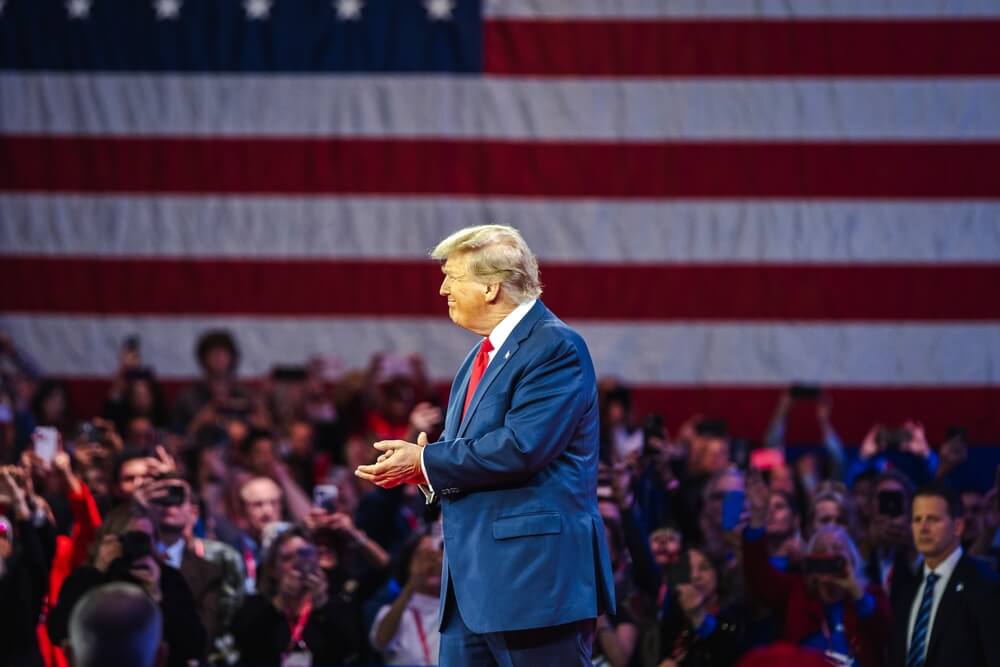Donald Trump caused tremendous anger when he called African nations "shithole countries" during his previous mandate.
However, since the beginning of 2018, when he said it in a private meeting, the US-Africa landscape has changed to such an extent that it is almost impossible for Trump to repeat such an insult today.
In the next four years of Trump's presidency, Africa could be one of the most important battlegrounds for global dominance with America's main rivals, primarily China.
Initial expectations about the change in the US's view of Africa are not particularly encouraging. The early stages of Trump's presidency will primarily focus on the crises in Ukraine and the Middle East, particularly the "adjustment" of relations with China, which the new president sees as a key American rival.
Expectations from the new administration to immediately move towards fixing major global crisis hotspots are prevalent, which is why dealing with African challenges is relatively low on Trump's list of priorities. After all, he has not yet formed his own team to handle Africa for the administration.
Negative legacy in Africa
Moreover, the outgoing administration of Joe Biden will not leave a positive African record to their Republican successors. Biden's period was marked by a significant loss of positions for Western allies in Africa.
Under the onslaught of a series of coups in the Sahel, followed by conflicts in Sudan, DR Congo, Nigeria, and elsewhere, the historic security and military presence of the US and allies in Africa has almost completely disappeared.
As many as nine coups took place in the central belt of Africa in a period of just three years, from 2020 to 2023, most of which were successful.
Donald Trump and his team have reason to show a discontinuity with Biden's policy by reversing the passive approach of the US in Africa
This left much of the continent in the hands of autocratic military regimes and open to the rise of Islamic extremist forces.
“Years of counter-terrorism work on the continent are going by the wayside, along with strategic partnerships and relationships built over decades of evolving engagement, due to the coup pandemic and new state leaders being less willing to host Western counter-terrorism forces,” wrote John Chin and Haleigh Bartos, researchers at Carnegie Mellon University.
Donald Trump and his team have reason to show a discontinuity with Biden's policy by reversing the passive approach of the US in Africa.
Strengthening the diplomatic network
Some aspects of the potential turnaround, such as a stronger US trade and investment presence, must be long-term, while others might be more feasible in the short term, making them more appealing to the incoming administration.
One of the important causes for the decline of American influence in Africa is the chronic shortage of diplomatic personnel across the continent, due to the low motivation of diplomats to serve in African capitals.
Strengthening the US diplomatic presence in Africa is purely an administrative measure and will depend only on the political will of the new administration
"We have huge blind spots in our understanding of political dynamics, military dynamics in the countries where we are active. This is a mega issue that U.S. diplomacy faces, and it's particularly acute in Africa,” said Cameron Hudson from the Center for Strategic and International Studies in Washington, a former CIA analyst who worked in Africa.
Strengthening the US diplomatic presence in Africa is purely an administrative measure and will depend only on the political will of the new administration.
Another important test for changing the US presence in Africa will be the fate of the African Growth and Opportunity Act (AGOA), a trade mechanism that since the Bill Clinton era in 2000 has allowed duty-free exports from sub-Saharan Africa to the US for nearly 2,000 products.
New economic stimulus
However, AGOA expires next year, and its extension remains uncertain. If the Trump administration, which typically opposes such multilateral arrangements, particularly in the trade area, chooses to extend its validity, it would signal that Trump's economic isolationism will not apply to Africa after all.
The biggest beneficiary of AGOA is South Africa, one of the largest African economies, and it certainly has an interest in preserving the preferential trade regime with the US. At the same time, South Africa has shown a major shift regarding an alliance with Russia in recent years, so the continuation of trade facilitation could affect its previous policy of distancing itself from the US.
 Trump returns to the White House at a time when China's global Belt and Road Initiative is winding down, leaving behind many African economies in the debt gap
Trump returns to the White House at a time when China's global Belt and Road Initiative is winding down, leaving behind many African economies in the debt gap
Given China's increasingly growing economic presence on the continent in recent years, Africa will inevitably become one of the important theatres of this conflict, anticipating the Trump administration's great rivalry with China over the next four years.
Trump returns to the White House at a time when China's global Belt and Road Initiative is winding down, leaving behind many African economies in the debt gap.
This is positive for potential new US strategies for Africa, but it will not suffice on its own if the new administration does not adopt a more offensive approach.
However, Trump's presidency could find inspiration in the fight against Chinese influence in Africa. In this regard, we should approach Trump's main policy directions, like economic protectionism or aversion to multilateral agreements, cautiously when it comes to Africa. Africa is where they can find their exceptions.